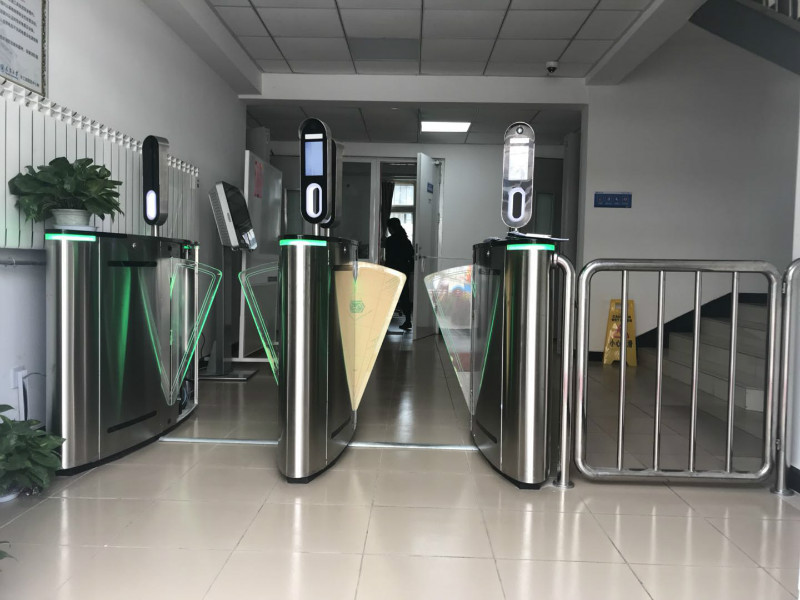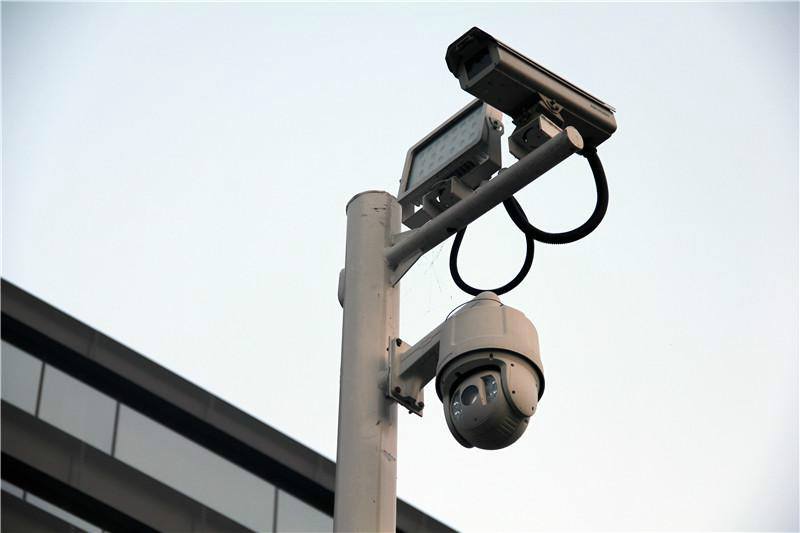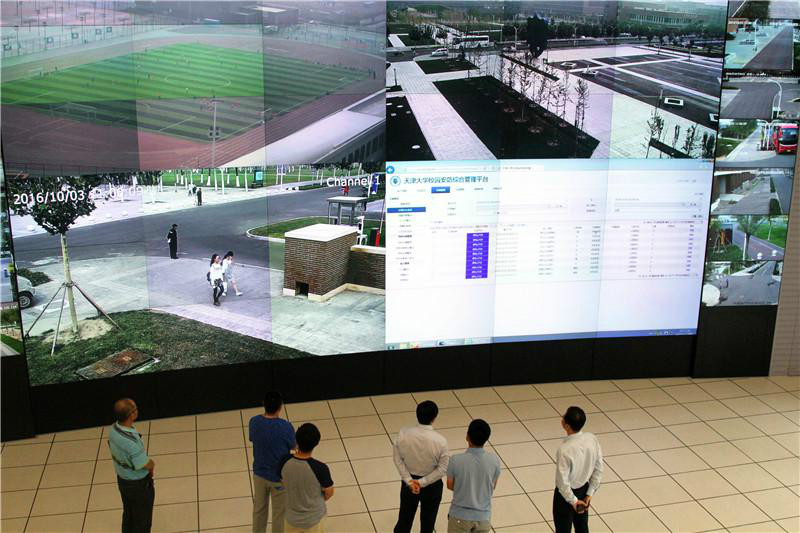
In recent years, with the help of emerging technologies such as cloud computing, cloud storage and artificial intelligence, the quality of teaching at TJU has greatly improved, and those technologies have facilitated talent cultivation.
Face recognition systems have been piloted in some dormitories in the Weijin Road Campus and the library in Peiyangyuan Campus recently. By downloading courseware from the cloud computing operating systems rather than bringing a PC, the intelligent technology makes teaching more convenient. Interactive live broadcasts have been applied in opening ceremonies for first year students over the past three years, and cross-campus video interviews have been used at job fairs.
“In the past, every classroom was equipped with a desktop computer, which resulted in inconvenience for management, because computer viruses had to be killed and software updated every now and then", said Zhang Yu, a staff of TJU’s Multimedia Center. However, nowadays cloud computing services have been put into use in Peiyangyuan campus, with which teachers can upload and download courseware with just a click.
The Smart Campus represents itself in the application of intelligence and information and the idea of low-carbon and energy-saving. "In the past, we had to install a bunch of optical fibers in order to build a single network, while in the Peiyangyuan Campus, a bearer network has been constructed and the optical fibers were installed in the first place. All applications are virtualized on the network and they function without interference from other ones." said Liu Feng, Director of TJU's Information and Network Center. "

More than 2,000 surveillance cameras have been installed outdoors in the Peiyangyuan Campus, and indoor spaces such as teaching buildings, the library, dormitories, and canteens were equipped with cameras, too. Moreover, the assigned logistical personnel work 7/24 in the surveillance center. Given that the Peiyangyuan Campus occupies a large area, the network-based management has been adopted within the security system, where security guards are able to reach the destination within 5 minutes in case of emergencies.

The Smart Campus consists of one bearer network that governs the whole campus, seven centers ranging from information and data to security, and eighteen subsystems covering energy, surveillance, and access control, etc., providing all-round services for teachers and students.
“The network is very convenient. Students have access to the wireless network even when they are in their dormitories, so that a router is not necessary in the building.” said Li Ruiling, a junior in School of Foreign Languages and Literature.
At present, there are over 49,000 wireless setting points in the Peiyangyuan Campus, including 5,430 wireless access points. Therefore, people anywhere in the campus are able to get access to the internet.
The one-card system also facilitates campus life. With one single ID card, teachers and students are able to deal with many things, such as paying for daily necessities, having meals, and paying for electricity and water, among many others. Network-based management is adopted in the system. Those who lose their card can go to the ID card management center to report the loss and apply for a new one, to which the data from the lost card will be transferred. The unified management of data not only keeps teachers and students’ private information from being lost, but also helps save time.
Intelligent technologies can be found in other areas, too. Information is easily acquired through the information releasing system. Real-time energy monitoring and access control systems reassure the teachers and students that the campus is safe. With the intelligent lighting system, light switches can be adjusted according to different situations, including people’s flow rate and natural light.
A leader in charge of the Planning and Construction Management Office on the new campus, who constructed the blueprint for the Peiyangyuan Campus said that with the rapid development of emerging information technologies such as cloud computing and the Internet of Things, the construction of the new campus is closely linked to the new technologies. High technologies help make the Peiyangyuan Campus a more intelligent one.
By: Liu Xinning, Wu Jingjing
Editors: Sun Xiaofang and Ross Colquhoun






